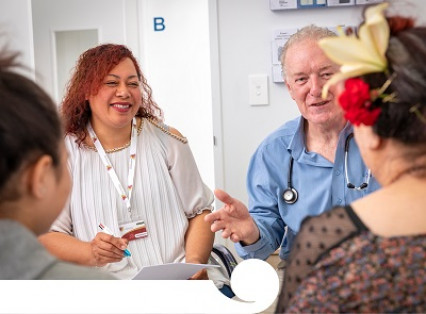Kia ora koutou katoa.
Earlier this year I announced the reform of the health and disability system.
The goal of that reform is to build a health system that offers better access and better equity for all New Zealanders. We’re determined to fix the health system so it works for everyone.
At the centre of the changes we are making is the establishment of Health New Zealand which will see our 20 DHBs become one organisation, and the Māori Health Authority which will provide new leadership on hauora Māori.
I’m confident these reforms will make a big difference for the people working in our health system.
It will enable health workers right across the board to work more collaboratively, be supported to be more innovative, and most of all – because the most important people in the health system are the patients – it will enable the workforce to be more effective at helping more New Zealanders to live longer, in good health, with the best possible quality of life.
I know our health workforce is the turanga – the foundation - of our system.
I want to acknowledge and I want to thank every single one of you for the hard work that you do.
Thank you for continuing to provide high quality care for New Zealanders at a time when you’re dealing with the extra pressures of COVID and at the same time doing the routine care and balancing all those things that you do every day.
To do this you’ve had to collaborate, cooperate, and adapt to keep our team of five million safe.
I want to make sure what we’ve learnt over this time can be captured and is part of the way the future system works when Health New Zealand and the Māori Health Authority start operating.
On this front what I can say is we’re making great progress setting up the new organisations.
At the moment the new bodies are interim. Shortly we will introduce legislation to make them permanent, and by the first of July next year the new system will be fully in place.
So what will this mean for you?
For frontline staff currently working for DHBs, the Public Health Units and the shared service agencies, you can expect to transfer to the new entities and can continue to focus on doing the great work you do now, in the new system.
I want to assure everyone in the health system – whether you’re administrators, cleaners, nurses, doctors or orderlies – we are not cutting the workforce – we will need more – not fewer – people like you working in the future health system.
We will also continue to need leadership at all levels of the health system, including in our hospitals. But the reality is, I expect some roles at the top to change.
To get to the point we’re at now there has been a lot of engagement with the sector. Many of you have participated in this so far, and it’s been great to see, so keep your ideas coming.
You will see a lot more engagement in your workplace in the months ahead because there will be presentations and information about what is going on as we head towards July the first next year.
One of the other things we’re working on, as well as the new organisations, is the health charter – the charter is all about the workforce, the values we expect and what you’re entitled to expect about the way you work.
The charter will be important to you because it will lay out the values for the system. Those values are to support you to do your best, and that means you’re doing the best for patients.
We will want to hear from you about the charter, so keep an eye out for opportunities to get involved. I want the final Charter to be ready to go when Health New Zealand and the Māori Health Authority get to work in July next year.
Thanks again for all the work you do. I’m really excited for what the future holds and the huge opportunities ahead for you as health professionals, and for patients who are so dependent on the great care you provide.
Thank you for your time, Kia Ora Tatou
